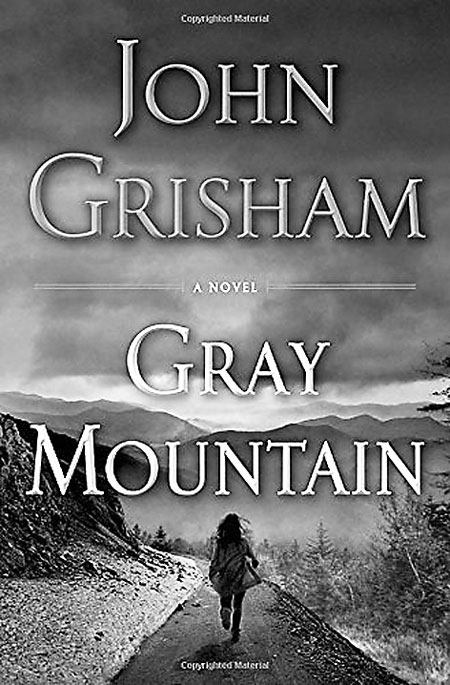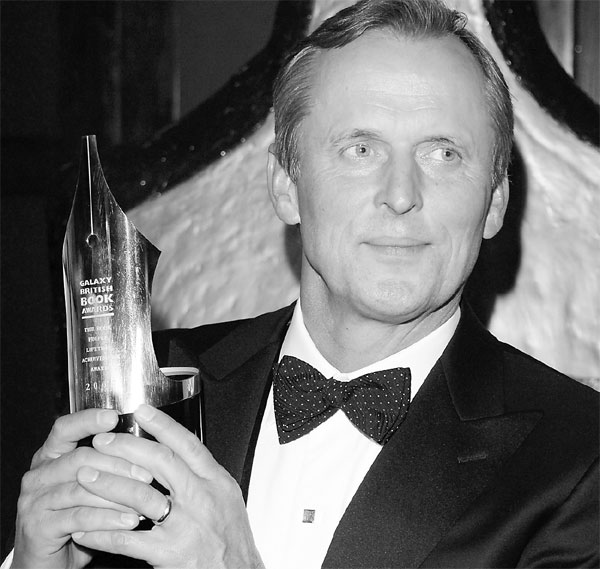'If I didn't write, what else would I do?'
Updated: 2015-01-05 13:32
By Peter Foster in Charlottesville, Virginia(China Daily USA)
|
|||||||||
John Grisham talks about his new novel Gray Mountain, Twitter and Hillary Clinton. He also answers readers' questions about life as a bestselling thriller writer.
For one of the biggest of big-shot writers, who has sold 275 million books worldwide, stormed the Hollywood box office in the 1990s and - even in the relative twilight of a 25-year career - still earns ��10 million a year from his work, John Grisham is something of a surprise.
When we meet, it's not in some swanky Los Angeles studio or the suite of a boutique New York hotel, but on a rain-stained street in Charlottesville, Virginia. This is prosperous small-town America, built of red brick in the colonial style, with a little history to raise the tone - two American presidents, Jefferson and Monroe, came from Charlottesville. And the man who comes padding round the corner in lace-ups, khaki slacks and an open-necked checked shirt seems to fit right in.
There are no flacks, no flunkies - not even a receptionist to retrieve his visitors. Grisham hasn't shaved, and it's not clear if the thin covering of beard (much more salt than pepper as he enters his 60th year) is designer or not. He's so relaxed, so full of easy, expansive Southern hospitality - Grisham was born in Arkansas and practised law in Mississippi - that it seems equally possible that he just couldn't be bothered the last couple of mornings. It's a writer's life, after all, and one he clearly still loves.
The loft office is nice but, like the man, not the least bit over the top. The walls have posters from the movies - The Firm, The Pelican Brief, The Client - but you get the feeling that the memorabilia was put up by someone other than Grisham. He doesn't seem like a man who would waste time building a shrine to himself.
Among the objets d'interet is a photo of Grisham with Stephen King, some black and white stills from one of his movies, and even an office door from the set of The Client, with "Reggie Love Attorney" - played by Susan Sarandon in the 1994 movie - inscribed in gold letters on the frosted glass.
That was the heyday, of course, when people queued for the new Grisham novel like they now queue for the iPhone. Grisham recognises that that world has faded - both the bookstores, which he says are being drummed out of business by Amazon, and the films, which no longer get made. There are five in development, he explains, but these days the financing always seems to fall through.
Every time he publishes a new book there's a great splurge of interest, but it tails off month by month until finally the phone stops ringing. He can't really be bothered with it at this point. "Hollywood doesn't want to make those sorts of movies anymore," he says, with a note of ruefulness.
That seems to be Grisham these days - genuinely grateful for his monumental success - but, like a big league athlete whose moment has passed, conscious that the world has moved on. As of he has a Twitter account, but only because his publishers made him open one. "I said in public, 'I can't think of anything worse than stopping several times a day and sharing my thoughts and activities with a bunch of people, and I damn sure don't want to know what you're doing so just leave me alone.' I said that publicly and Twitter didn't like it. But now I have a Twitter account. I don't mess with it."
He views the rise of Amazon and ebooks in much the same way, equating Jeff Bezos with the "Robber Barons" of the 19th century who established monopolies in order to crush the competition.
"They basically want to eliminate all publishers," he continues, while acknowledging that his own books still do more than ok. The last one, Sycamore Row, which was a belated sequel to his first novel A Time To Kill, sold a million hardbacks and a million ebooks. Those are numbers most novelists would kill for, but it's nothing like the good old days.
"The market has shrunk. It's trending down and it has been for 15 years. So that's where we're headed," he says.
Fan of Charles Dickens
In the age of Reddit and Twitter, might an episodic release rekindle the fire? Grisham is a big fan of Charles Dickens, whose serialisations were once as popular as iPhones and his own novels, but he isn't hopeful. He says his publisher tried it a few titles ago, but it didn't work. "I brainstormed with Stephen King about it, but back in Dickens' time all people had was books. Now they lose interest too quickly."
There he goes again, striking a minor key; his soft, Southern tones redolent with summers that have come and gone. Which is not to say Grisham is unhappy with his lot - indeed, his genuine charm is how clearly he still thrills at the good fortune of his own life's journey, from small-town hack lawyer, struggling to make ends meet, to multi-millionaire novelist with a private jet. "That's the one toy you don't want to lose," he says with a smile. (There are properties in Mississippi and Florida, but no yacht. "I don't do boats, man," he says. "I get seasick standing in the shower.")
But money is not why Grisham still works as hard as he does, getting up at 7 am every morning and writing until lunchtime in order to deliver the new novel. It's simpler than that. "If I didn't write, what else would I do? Get another job? Take up a hobby?"
Not for money
The process starts every year on January 2 as he plots out a new outline, and ends on July 1 when he delivers the manuscript for publication that October. I wonder if, when the money really started to flow, he wasn't tempted by Hollywood, or the literary party circuit - by the glamour that could come with being a household name. Movie sets are "boring", he says, and the people on them even more so. Writing is what Grisham does.
Which brings us to politics, because it is politics in the broadest sense - the politics of race, crime and the criminal justice system - that fuel Grisham's appetite for a story. "In another life, I was a small town trial lawyer representing people who were suing insurance companies or banks or corporations," he says. "That's where I cut my teeth. And when you do that you realise how important the politics are."
The new novel, Gray Mountain, is in that tradition. It tells the story of a 20-something big city lawyer who is laid off after the collapse of Lehman Brothers and rediscovers her soul fighting for the little guy against 'Big Coal' as it pollutes the Virginia countryside.
To be political
Grisham is also political, with a capital 'P' - a card-carrying Democrat who served two terms in the Mississippi state legislature in the 1980s and supported Hillary Clinton in 2008. Grisham says he hosted a fundraiser for her in this very office, but here again, weariness creeps in. He says he wants to do a novel about Washington ("there's a big fat novel there"), but what makes it a good subject - the money, the grasping, the lobbying and perpetual campaigning - has also made it tiresome.
"That's American politics. The money is just so rampant and corrosive. We should call it corruption," he says, "You're actually buying votes, that's what you're doing. But it's all legal. It's a rotten system and it's getting worse every year in this country."
Even so, he still thinks - as he did in 2008 - that Hillary would make a brilliant president, unlike Mr Obama who in Grisham's view was just "too green" for the job and, in the way of modern, celebrity-obsessed culture, was elected way before he was ready for prime time. "It was amateur hour from the very beginning. I voted for him twice. I mean, I vote Democrat. But he really has not done much to give you hope."
This disappointment with the real world is part of what draws Grisham away from the greyscale of actual politics and back to fiction, where he can frame the issues in black and white. He has already identified a target for the next novel, he reveals, inspired by the recent rash of shootings of black teenagers by white policemen.
The plot is still in gestation, but he says it will explore the flaws of a criminal justice system that sees America imprison its population at five times the rate of Britain and most other developed-world countries. He wants to look at a system that "treats black teenage boys and white teenage boys so differently for the same crimes. Always drugs. We have a million black guys in prison now for non-violent drug offences. One million."
He says it with real feeling. It is a culture of mass incarceration that sucks up far too many people, Grisham contends: from black teenagers to non-violent white collar criminals like Martha Stewart and - in remarks that earned him global condemnation recently and for which he later apologised - old, white guys his age who once had one too many drinks and looked at some child pornography.
It's an attitude that 20 years ago might not have drawn so much attention - he clearly felt he was being perfectly reasonable - but like paperback books, Twitter, big money politics and Hollywood movie studios, unfortunately for John Grisham, the world has moved on.
|
The novel tells the story of a 20-something big city lawyer who is laid off after the collapse of Lehman Brothers and rediscovers her soul fighting for the little guy against 'Big Coal' as it pollutes the Virginia countryside. Provided to China Daily |
|
John Grisham's name has become synonymous with the modern legal thriller. Provided to China Daily |
(China Daily USA 01/05/2015 page7)
- Chinese supermarkets help Brazil, Argentina ride out tough holiday season
- Blog bridge Brazil-China economy
- Chinese VP attends Brazilian president's 2nd-term inaugural
- Brazil uses antidumping measures against China
- Thousands gather in NYC to see off slain policeman
- Weather believed 'triggering factor' in AirAsia crash
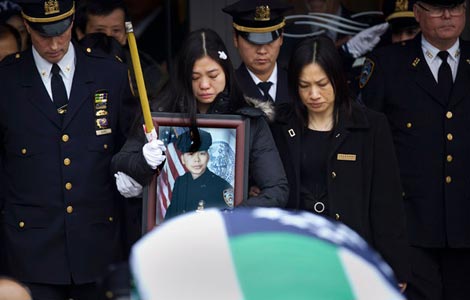
 Thousands gather in NYC for funeral for slain police officer
Thousands gather in NYC for funeral for slain police officer
 Scars of honour
Scars of honour
 Mall turns shops into rail carriages
Mall turns shops into rail carriages
 Martial arts conference to be held in Georgia
Martial arts conference to be held in Georgia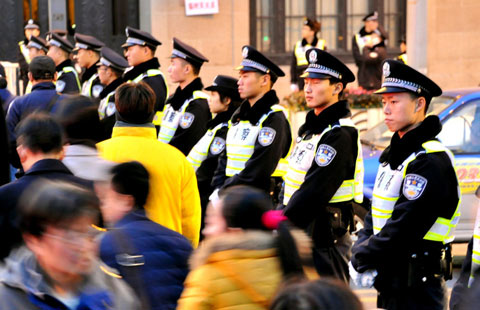
 Shanghai beefs up security around fatal stampede site
Shanghai beefs up security around fatal stampede site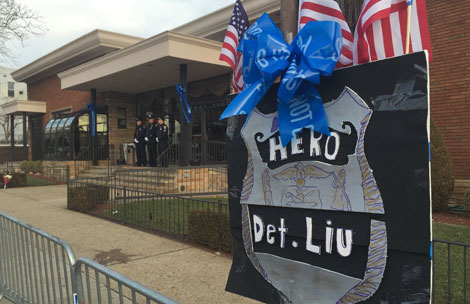
 Slain NYPD officer's wake ceremony held in Brooklyn
Slain NYPD officer's wake ceremony held in Brooklyn
 TV drama hides assets of actresses
TV drama hides assets of actresses
 Chinese VP attends Brazilian president's 2nd-term inaugural
Chinese VP attends Brazilian president's 2nd-term inaugural
Most Viewed
Editor's Picks
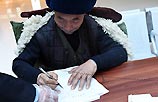
|

|
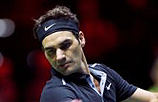
|

|

|

|
Today's Top News
China braces for slower but better growth in 2015
New York mourns slain police officer
Chinese VP attends Brazilian president's 2nd-term inaugural
Brazil uses antidumping measures against China
Thousands gather in NYC to see off slain policeman
China's former IOC member He Zhenliang dies
NYC mourns slain NYPD officer
Chinese to unveil SUV at Detroit show
US Weekly

|

|
